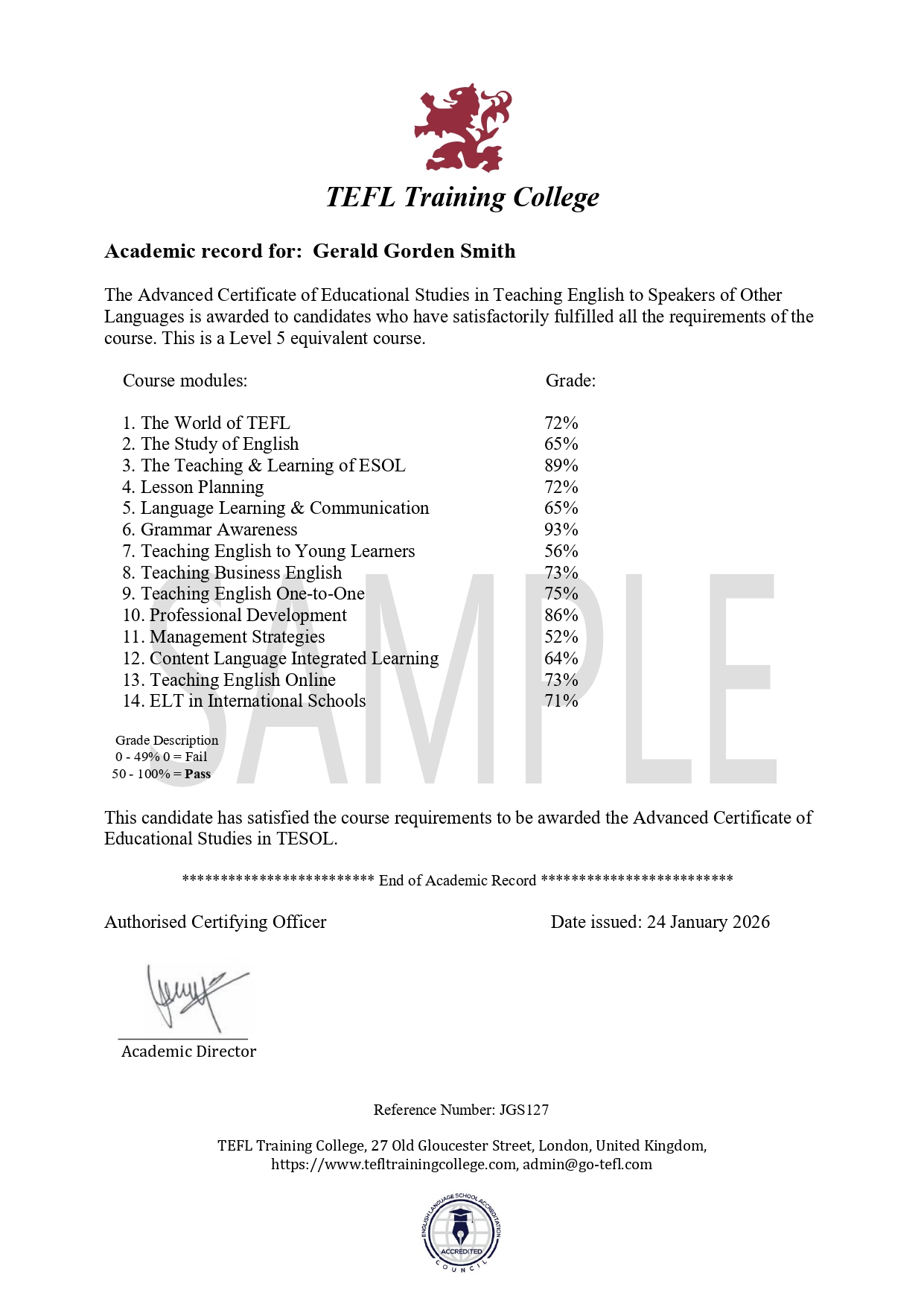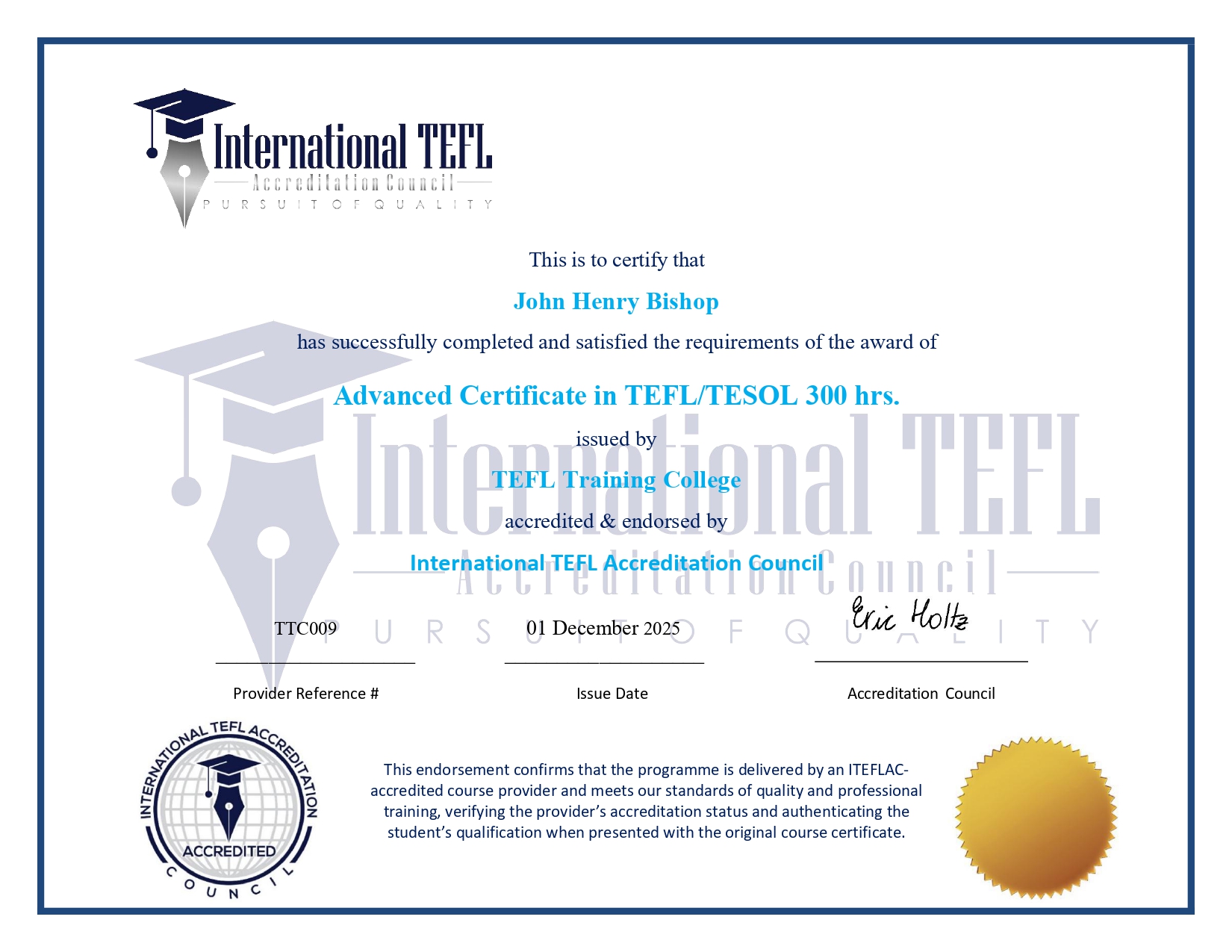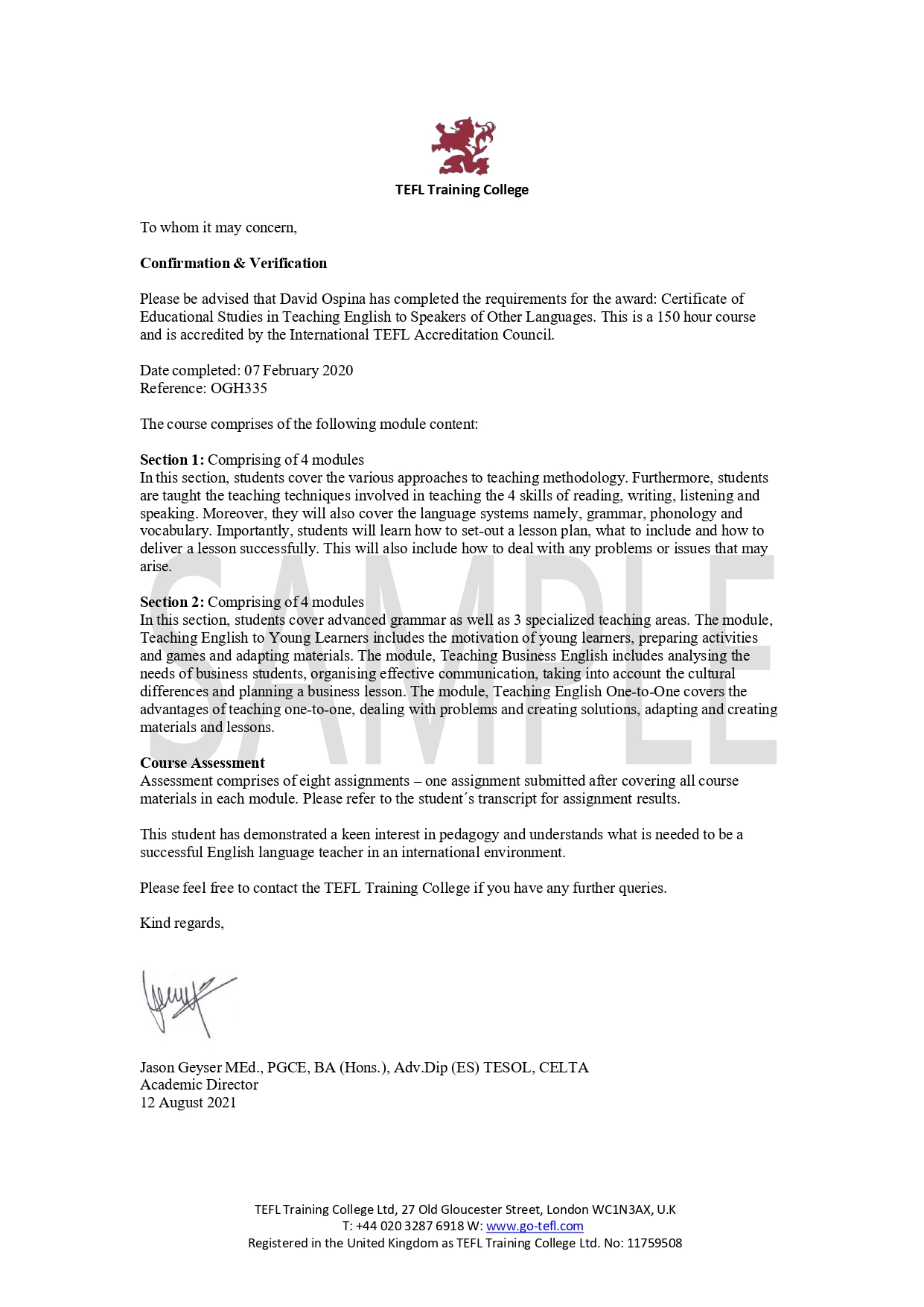Certificates
TEFL Training College
Professional Development & Accredited Certificates

Completion of the Advanced Certificate course will demonstrate your commitment to professional development, self-improvement, and ongoing learning. This course can also serve as a refresher or help you determine whether teaching English is the right path for you.
For those seeking an official and accredited TEFL qualification, you have the option to order a digital certificate or physical certificate below. These certificates are internationally accredited by the International TEFL Accreditation Council (ITEFLAC), each bearing the ITEFLAC logo, a unique reference number for verification, and an authorized signature.
Benefits of Earning Professional Certificates
Accredited Digital Certificate (Level 5 equivalent)

Additional 5 Certificates

Professional Employment Bundle

The Ultimate TEFL Credential

Digital Copy

Schools don’t just want a certificate — they want proof. This is it.

Your TEFL certificate shows completion.
Your academic record shows credibility.
Schools, recruiters, and visa offices often want more than a certificate. They want to see what you studied, how you were assessed, and that your training meets academic standards. An academic record delivers exactly that.
It provides an official breakdown of your TEFL modules and results, instantly strengthening your application and setting you apart from teachers with certificate-only qualifications.
Many TEFL teachers only realize they need this after a school asks for it — and by then, the opportunity is on the line.
Add your academic record now to secure verified documentation, faster processing, and zero stress later.
👉 Don’t apply with half a qualification.
*You can add your academic record / transcript when ordering your official accredited TEFL/TESOL Certificate. The fee for the academic record / transcript is £9.
Enhancing Confidence & Credibility

When ordering a course certificate, student´s may choose to include an endorsement certificate to their order. This endorsement certificate is issued by the International TEFL Accreditation Council (ITEFLAC). An ITEFLAC Endorsement Certificate is an official document issued by ITEFLAC in conjunction with a course provider’s own TEFL or TESOL certificate. It is a mark of external quality assurance, confirming that:
Why Students Value It
1. Enhanced Employability
A dual-supported credential (course certificate + ITEFLAC endorsement) makes an applicant more attractive to schools, online platforms, and international employers.
2. Independent Quality Assurance
The endorsement confirms their training meets regulated, externally reviewed standards.
3. Added Security and Legitimacy
Students receive a professionally recognised certificate that provides reassurance during job applications, visa processes, and international placements.
* The fee for the ITEFLAC Endorsement Certificate is £10. You can add your academic record / transcript when ordering your official accredited TEFL/TESOL Certificate. **These certificates do not replace the course provider’s official TEFL or TESOL certificate. Instead, they act as a supplementary endorsement, verifying that the qualification has been awarded by an institution that meets ITEFLAC’s rigorous accreditation standards.
Because certificates alone don’t answer real questions

The Confirmation & Validation Letter explains what you studied, how you were assessed, and verifies it all in one employer-ready document.
This is the document requested when employers, embassies, or institutions ask for “proof,” “verification,” or a “letter of recommendation.”
✔️ Confirms course completion
✔️ Verifies assessment structure
✔️ Outlines academic content
✔️ Designed for third-party review
For full verification, all three documents should be presented together.
👉 If you’re asked to explain your qualification — this is the document they mean.
*You can add your Confirmation & Validation letter when ordering your official accredited TEFL/TESOL Certificate. The fee for the letter is £9.
TEFL Certificates

Employers, schools or notaries may request that the TEFL training College verify a student´s TEFL TESOL qualification. Therefore, we will gladly verify a student´s credentials via email.